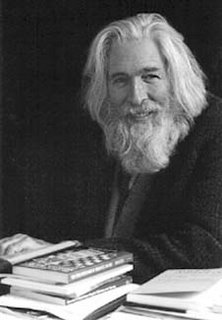
I really enjoy logic and puzzles, especially paradoxes. One of my favorite examples of a logical paradox comes from Raymond Smullyan in his book, What is the Name of This Book? (New York, 1978).
He says, "My introduction to logic was at the age of six. It happened this way: On April 1, 1925, I was sick in bed with flu, or something. In the morning my brother Emile (ten years my senior) came into my bedroom and said,
'Well, Raymond, today is April Fool's Day, and I will fool you as you have never been fooled before!'
I waited all day long for him to fool me, but he didn't. Late that night, my mother asked me, 'Why don't you go to sleep?' I replied, 'I'm waiting for Emile to fool me.' My mother turned to Emile and said, 'Emile, will you please fool the child!' Emile then turned to me, and the following dialogue ensued:
Emile: So, you expected me to fool you, didn't you?
Raymond: Yes.
Emile: But I didn't, did I?
Raymond: No.
Emile: But you expected me to, didn't you?
Raymond: Yes.
Emile: So I fooled you, didn't I!
Well, I recall lying in bed long after the lights were turned out wondering whether or not I had really been fooled. On the one hand, if I wasn't fooled, then I did not get what I expected, hence I was fooled. (This was Emile's argument.) But with equal reason it can be said that if I was fooled, then I did get what I expected, so then, in what sense was I fooled. So, was I fooled or wasn't I?"
I highly recommend What is the Name of This Book. It's a great introduction to logic in the form of puzzles. Most of the puzzles take the form of "You are on an island inhabited by Liars and Truth-Tellers, but you don't know who is which," and it gets more complicated from there. Much more complicated. At the end of the book, you're dealing with "insane liars" who, regardless of what is true, believe the opposite. So an insane liar always inadvertantly tells the truth because what they believe is true is really false, but they lie about it.
Ouch.




WHOA! I am interested in the same type of thing. But a lot of it I don't even get:-)
ReplyDeleteYeah, a lot of it is too much for me, too. But I'm convinced that you will be way ahead of me in no time at all (as opposed to at no time at all :-)
ReplyDeleteThis comment has been removed by a blog administrator.
ReplyDeletein no time at all vs. at no time at all.
ReplyDeleteYeah! I guess so!
ReplyDeleteNice blog!
ReplyDeleteBravo for making me stop thinking for a minute.
ReplyDeleteLOL
ReplyDeleteBecause words have multiple meanings and imprecise meanings we cannot reach the truth by reasoning alone. But words are what we use most often to express ideas. When we speak of truth, we are speaking of the truth of a group of words. We come up with words for things which may or may not exist, such as eternity, infinity, finite, supernatural, divine. Logic and reasoning break down when we get to the extremes of human imagination. Logic and reasoning serve us well in the here and now, but can it apply to eternity, infinity, the supernatural, or the divine?
ReplyDeleteCan logic and reasoning apply to a discussion of eternity, infinity, the supernatiural, or the divine"? If not, your statement that "logic and reasoning break down when we get to the extremes of human imagination" was illogical.
ReplyDeleteWhen I say infinity, I mean whether or not the universe is infinite in size. Mathematicians use infinity, but physicists assume that no measurable quantity can have an infinite value.
ReplyDeleteYes, logic an apply to a discussion of eternity, infinity, the supernatural, the divine, but it cannot address their existence or non-existence.
If the riddles of Raymond Smullyan likes you, then this web ( http://4chests.blogspot.com) too. Sure.
ReplyDeleteCu
Great site, Carlllord. Thank you!
ReplyDelete